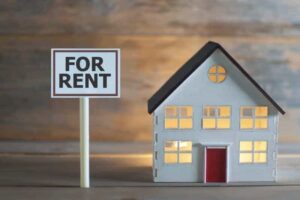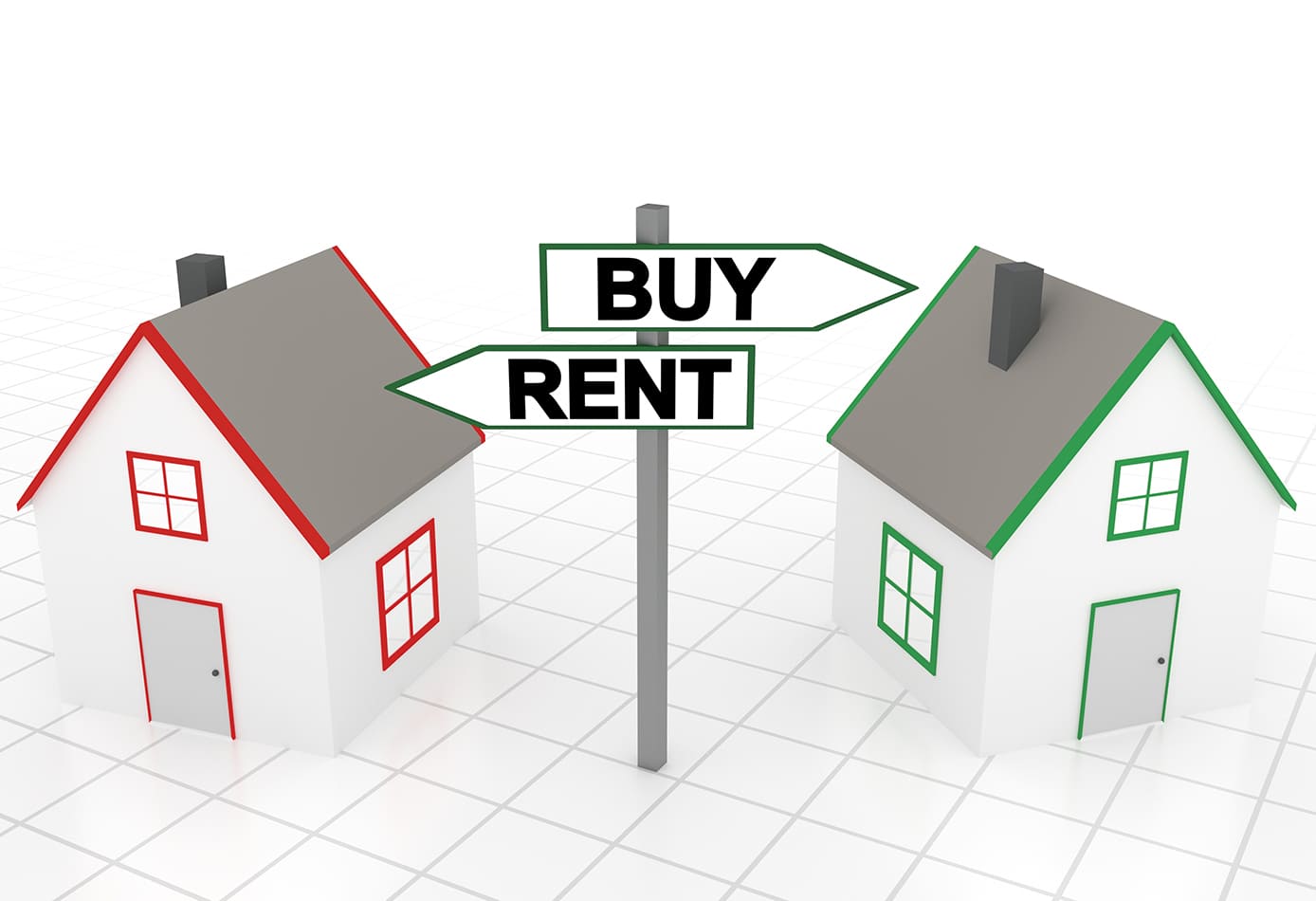Deciding whether to rent or buy a house is a significant financial and lifestyle choice that can have a long-term impact on your well-being. Each option comes with its own advantages and considerations, and finding the right fit requires careful evaluation. In this blog, we will explore seven key factors that you should consider when deciding between renting or buying a house.
By understanding these factors and weighing them against your personal circumstances, you can make an informed decision that aligns with your financial goals and lifestyle aspirations.
Renting a House

Renting a house offers several advantages and dispels the myth that it is a wasteful expense. While renting doesn’t allow for building equity like homeownership, not all costs of owning a home contribute to equity either. Renters have the benefit of knowing their fixed housing costs each month, clearly indicated in the lease agreement. Additionally, some landlords may include other expenses such as utilities, storage, or homeowner association fees in the rental amount, simplifying budgeting.
As a renter, one may encounter rent increases when the lease is up for renewal, particularly in certain areas. However, in regions with rent ceilings and rent control regulations, landlords are restricted in how much they can increase the rent, if at all. Renting also provides flexibility in terms of mobility. Once the lease ends, renters have the freedom to move to a new location. However, there is also the possibility of having to move suddenly if the landlord decides to sell the property or convert the apartment complex into condominiums. In less drastic scenarios, the rent could be increased beyond what the renter can afford.
Overall, renting a home offers the advantage of predictable monthly costs, potential inclusion of additional expenses, and flexibility in terms of moving. While it doesn’t involve building equity, renting can be a practical and convenient option for those who prioritize flexibility and prefer not to commit to the responsibilities of homeownership.
Buying a house

Buying a house comes with both tangible and intangible benefits. It grants you the freedom to make decisions about the appearance and design of your living space, providing a sense of stability and pride of ownership. However, it’s essential to consider the potential challenges and costs associated with homeownership.
One aspect to keep in mind is the cost and liquidity of real estate. Selling a property can be expensive and time-consuming, especially if the housing market is unfavorable. Even in a favorable market, transaction costs can significantly impact the final selling price. Additionally, the overall cost of homeownership tends to be higher than renting, considering various expenses that homeowners bear. These expenses include property taxes, trash pickup, water and sewer service, pest control, tree trimming, homeowners insurance, pool cleaning (if applicable), lender-required flood insurance, and earthquake insurance in certain areas.
Mortgage interest is another significant factor to consider. In the early years of a long-term mortgage, a substantial portion of your monthly payment goes toward interest rather than the principal balance. For example, with a 30-year loan at 4% interest, nearly all of the initial payments can go toward interest, resulting in significant interest payments over time. While you may be eligible for tax deductions on mortgage interest, it’s important to consider the net impact on your finances.
Furthermore, repairs and maintenance can pose additional financial burdens. Unexpected issues, such as a roof leak, can arise, requiring costly repairs. Homeowners are responsible for these expenses, which may not always be covered by insurance policies.
Despite these considerations, homeownership offers the advantage of personalization, stability, and the potential for long-term investment. It’s crucial to carefully evaluate your financial readiness, assess the ongoing costs, and plan for unexpected expenses to ensure a successful and sustainable homeownership experience.
7 Key Factors to Consider in Renting or Buying a House

-
Financial Stability:
One of the most crucial factors to consider is your financial stability. Assess your current financial situation, including your income, savings, and credit score. Determine if you have enough funds for a down payment, closing costs, and ongoing homeownership expenses. Renting may be a more viable option if you have limited savings or uncertain income, while buying a house may make sense if you have a stable financial foundation.
-
Long-Term Plans:
Consider your long-term plans and how they align with your housing needs. Are you planning to stay in the same location for an extended period? Buying a house might be suitable if you desire stability and the ability to customize your living space. On the other hand, renting offers flexibility and allows you to easily relocate as your circumstances change.
-
Cost Analysis:
Compare the costs associated with renting or buying a house separately. Rent typically includes monthly payments, while homeownership entails mortgage payments, property taxes, insurance, maintenance, and repairs. Analyze these expenses and calculate the financial implications over the short and long term. Remember that renting may offer predictable costs, while homeownership requires budgeting for unexpected expenses.
-
Market Conditions:
Evaluate the current real estate market conditions in your area. Research trends in housing prices, rental rates, and mortgage interest rates. If housing prices are high and renting is relatively more affordable, it might be a strategic choice to rent for the time being. Conversely, if the market favors buyers and mortgage rates are favorable, it could be an opportune time to consider purchasing a house.
-
Lifestyle and Flexibility:
Consider your lifestyle preferences and the level of flexibility you desire. Renting provides flexibility to adapt to changing needs, such as job relocations or lifestyle adjustments. Buying a house offers stability and the ability to create a long-term home, but it may limit your mobility. Think about your priorities and how each option aligns with your desired lifestyle.
-
Maintenance and Responsibility:
Evaluate your willingness and ability to take on maintenance responsibilities. Renting often comes with the advantage of having landlords or property managers handle repairs and maintenance tasks. Buying a house means you are responsible for maintenance and upkeep. Consider your comfort level with these responsibilities and factor them into your decision-making process.
-
Equity and Investment:
Think about the potential for building equity and the investment aspect of homeownership. Buying a house allows you to build equity over time as you pay off your mortgage. Real estate can appreciate in value, providing a long-term investment opportunity. Renting, however, does not offer the same equity-building benefits. Consider your financial goals and whether building equity is a priority for you.
Why pay rent when you can pay EMI and own an asset
The argument for buying versus renting a house is often centered around the notion that paying rent is equivalent to throwing away money, whereas paying equated monthly installments (EMI) allows you to build equity and own a valuable asset. This argument is frequently advocated by individuals such as parents, friends, or bank relationship managers who encourage homeownership.
While this argument initially seems convincing, a closer examination reveals a significant flaw, particularly when considering the soaring real estate prices and the approach to home buying. Let’s consider an example involving Priya.
Priya currently rents a spacious apartment in a prime location in Mumbai for INR 60,000 per month. If she decides to buy a house where her monthly EMI matches her rent, she may face a considerable challenge. The exorbitant cost of real estate in desirable areas of Mumbai means that finding a comparable property within her budget would be highly unlikely. She would likely have to compromise on location, settling for a property in a less prestigious or less convenient area if she wants to achieve homeownership.
However, like many individuals, Priya may be reluctant to compromise on her desired location and lifestyle. She may choose to take a larger loan and purchase her dream home in her preferred neighborhood. This decision brings us to another crucial aspect of the homeownership argument.
Is Renting Cheaper Than Owning a Home?

The cost comparison between renting and owning a home varies depending on factors like location, market conditions, and individual circumstances. Renting typically involves fixed monthly payments, while homeownership includes mortgage payments and additional expenses like maintenance. Tax benefits and the potential for equity growth can favor homeownership in the long run. Assessing personal finances and considering individual goals is crucial in determining whether renting or owning is more affordable.
Is Homeownership a Good Investment?
Homeownership can be a good investment due to the potential for building equity, property appreciation, tax benefits, and the sense of stability and control it provides. However, it also comes with financial responsibilities and market risks. Assessing your goals, local market conditions, and personal circumstances is crucial in determining if homeownership aligns with your investment strategy.
Also, read Which one to prefer- Top-Up Loans or Personal Loan
Conclusion
When deciding between renting or buying a house, it’s essential to carefully consider these seven key factors. Assess your financial stability, long-term plans, costs, market conditions, lifestyle preferences, maintenance responsibilities, and the potential for equity and investment. Each factor carries weight, and finding the right balance is crucial. Ultimately, the decision should align with your unique circumstances and aspirations. Take the time to evaluate your options, seek professional advice if needed, and make a choice that brings you closer to your housing and financial goals.
